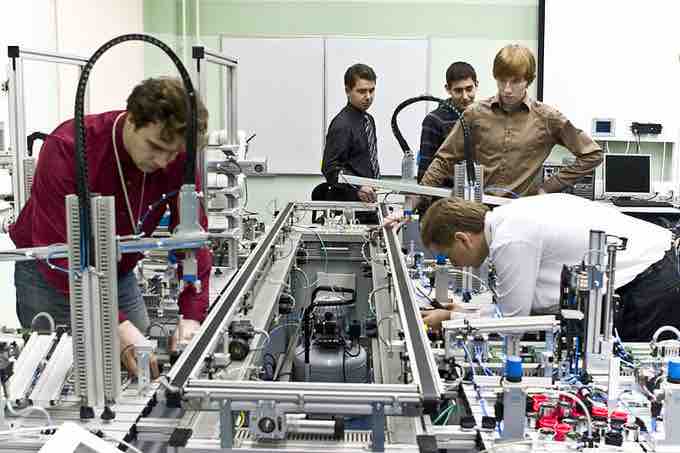Worker Productivity
In economics and long-run growth, worker productivity is influenced directly by fixed capital. The four types of fixed capital include: useful machines, instruments of the trade; buildings as the means of procuring revenue; improvements of land; and the acquired and useful abilities of all the inhabitants or members of society.
One way to increase worker productivity is to invest in better machinery, for example. A worker with a more productive tool in more productive.
Another way to increase productivity is to find ways to increase the revenue of the product generated by the workers. Since productivity is measured in dollars per worker, being able to generate more revenue from the same output is reflected in an increase in worker productivity.
Perhaps most interesting, though, is how to change worker productivity through human capital.
Human Capital
Human capital is defined as the stock of competencies, knowledge, social and personal attributes, including creativity, embodied in the ability to perform labor so as to produce economic value. Many economic theories tie education to economic growth explaining that it is an investment in human capital development . Human capital has been shown to increase economic development, productivity growth, and innovation.

Education
Education increases human capital and worker productivity.
A human resource is transformed into human capital with the effective inputs of education, health, and moral values. When individuals and societies invest in human capital it strengthens the future of the long-run economic growth. The qualitative and quantitative progress of a country is inevitable when human development is a priority. Over time, when worker productivity increases the quality and quantity of the goods and services will also increase.
Importance of Worker Productivity
When a society invests in human capital, it increases worker productivity and economic growth. Human capital and increased worker productivity are critical because they are different from the tangible monetary capital or revenue. It is important thought that an economy recognizes the importance of monetary capital. Worker productivity in the long-run is related to real income. If the real income falls over time it will negatively impact worker productivity. Economic revenue goes up and down due to shocks in the business cycle. Human capital grows cumulatively over a long period of time. When a society focuses on human capital and in turn worker productivity, the long-run economic growth will be steady. Economic inputs towards education, health, and worker productivity impacts future generations by ensuring that they will be more advanced and efficient than the current generation. The increase in worker efficiency is the direct result of a superior quality of manpower created through increased human capital.